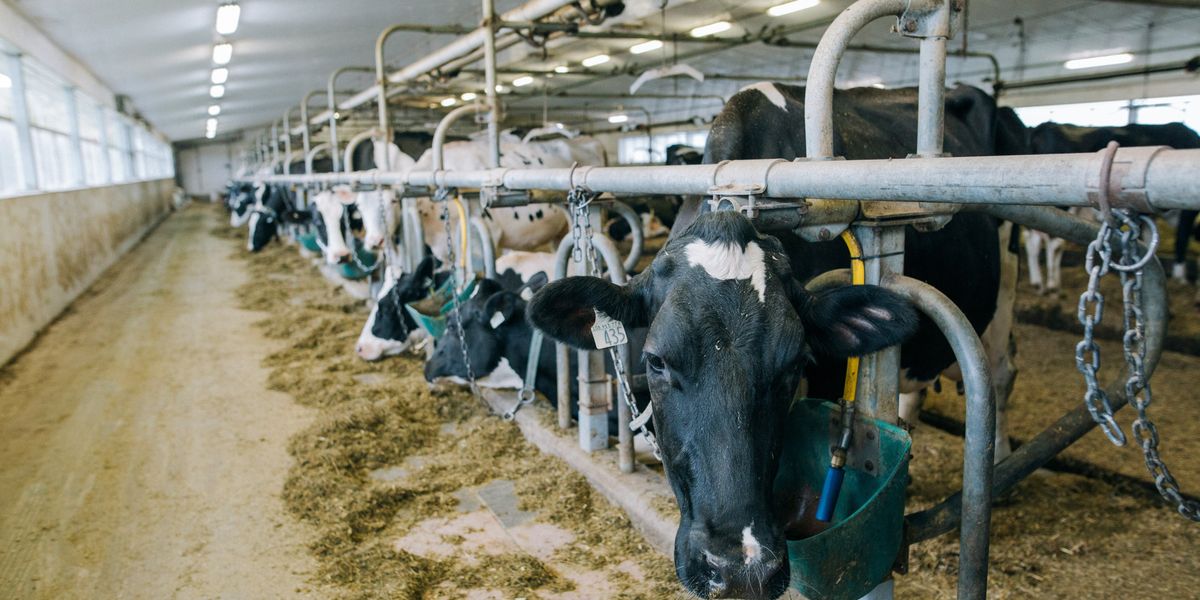
Fracking chemicals “imbalance” the immune system
Mice exposed to fracking chemicals during pregnancy were less able to fend off diseases; scientists say this could have major implications for people near oil and gas sites
Chemicals commonly found in groundwater near fracked oil and gas wells appear to impair the proper functioning of the immune system, according to a lab study released today.
The study, published today in the journal Toxicological Sciences, is the first to find a link between fracking chemicals and immune system problems and suggests that baby girls born to mothers near fracking wells may not fight diseases later in life as well as they could have with a pollution-free pregnancy.
"This is a really important study, especially since the work started with the idea of identifying what's out there in the environment, how much people are exposed to," Andrea Gore, a professor of pharmacology and toxicology in the College of Pharmacy at the University of Texas at Austin, told EHN.
"So it's all based on this model that has been determined by a real world situation," said Gore, who was not involved in the study.
The implications are far-reaching: More than 17 million people in the U.S live within a mile of an oil or gas well. Hydraulic fractured wells now account for about half of U.S. oil and two-thirds of the nation's natural gas, according to the U.S. Energy Information Administration.
Related: Fracking chemical mix causes disturbing changes in breast tissue
Fracking, short for hydraulic fracturing, is a method of drilling where millions of gallons of water and chemicals are pumped underground at high pressures to fracture shale or coal bed layers to release otherwise unreachable oil and gas deposits. The chemicals used in the process remain proprietary, however, industry has reported more than 1,000 chemicals are used in fracked oil and gas wells—and researchers have found more than 200 of these compounds in wastewater near extraction.
The researchers tested 23 chemicals commonly found in groundwater near fracking operations. The chemicals chosen were recently associated with reproductive and development impacts on mice.
The researchers exposed mostly female mice in their mothers' womb to the chemical mixture at levels commonly found near fracking sites. Exposed mice had "abnormal responses" to diseases when they were older—specifically an allergic disease, a certain type of flu, and a disease similar to multiple sclerosis.
"The mice whose moms drank water containing the mixture had faster disease onset and more severe disease," lead author Paige Lawrence told EHN in a phone interview. Lawrence is a researcher and chair of Environmental Medicine at the University of Rochester Medical Center.
Some of the observed changes were subtle — "such as alterations in the number or percentage of certain cell types, whereas other changes were more manifest, such as advancement in the onset and severity of disease," the authors wrote.
Lawrence said human and mice immune systems are "more similar than they are different."
"This provides information as to what to look for in people," she said.
It's not entirely clear how the mixture altered the mouse immune system, but Lawrence said the chemicals may be altering pathways that control the immune cells that would fight off diseases. Some of the compounds in the mixture—benzene and styrene—are considered toxic to mammals' immune system.
Related: Fracking chemicals and kids' brains don't mix
Susan Nagel, a researcher and associate professor of obstetrics, gynecology and women's health at the University of Missouri School of Medicine and study co-author, said the 23 chemicals they use are known endocrine disruptors, meaning they interfere with the proper functioning of hormones.
Properly functioning hormones are crucial for immune system development.
There's probably "some overlap of chemicals that perturb the endocrine system, some that perturb the immune system and probably some that do both," Gore said.
Female mice had more severe changes to their immune systems and abilities to fight off disease. "Immune responses of males and females are inherently different, and ... sex affects the timing, magnitude or penetrance of many diseases," the authors wrote, but cautioned that this study alone doesn't conclude that females are more sensitive to fracking chemicals than males.
The study is just the latest concern for people near fracking sites. Previous studies have found associations between living near fracking sites and birth defects, prostate and breast cancer, asthma, and acute lymphocytic leukemia.
Over the past decade the U.S. Environmental Protection Agency has identified dozens of chemicals used in fracking as health hazards, according to a report from the Partnership for Policy Integrity and Earthworks. However the report found the agency allowed the chemicals to be made and used, and hasn't disclosed the chemicals to the public.
The EPA would not comment on the new study — a spokesperson said the agency is reviewing it.













